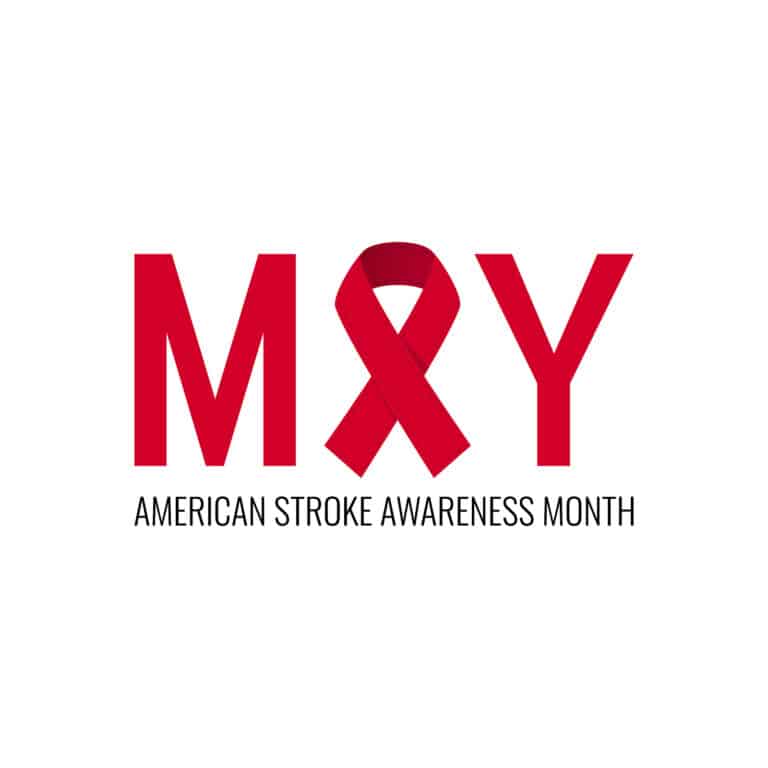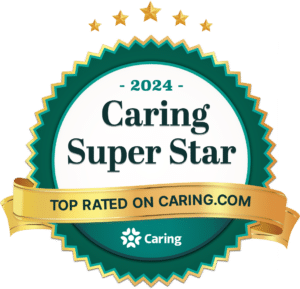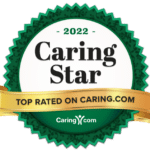Every May, Stroke Awareness Month highlights the impact of strokes and promotes education on prevention. Strokes are a leading cause of long-term disability and one of the most significant health risks for seniors. With age, the likelihood of experiencing a stroke increases, making awareness and prevention especially important. While some risk factors cannot be controlled, many can be managed through lifestyle changes and proper support. In-home care plays a key role in helping seniors reduce their risk and maintain a safe, healthy lifestyle.
Understanding Stroke Awareness Month
Stroke Awareness Month is dedicated to educating people about stroke symptoms, risk factors, and prevention strategies. A stroke occurs when blood flow to the brain is interrupted, either due to a blockage (ischemic stroke) or bleeding (hemorrhagic stroke). Without immediate medical attention, strokes can lead to permanent brain damage or even death.
According to the Centers for Disease Control and Prevention (CDC), nearly 800,000 people in the U.S. suffer a stroke each year, with older adults being the most vulnerable. Raising awareness about the warning signs and risk factors can save lives and improve outcomes for those who have experienced a stroke.
Common Risk Factors for Stroke in Seniors
1. High Blood Pressure
Uncontrolled high blood pressure is the leading cause of strokes. Over time, high pressure in the arteries can weaken blood vessels, increasing the chance of a blockage or rupture in the brain.
Prevention Tips:
- Monitor blood pressure regularly.
- Reduce salt intake and eat heart-healthy foods.
- Take prescribed medications as directed.
2. Diabetes
Seniors with diabetes are at a higher risk for stroke due to high blood sugar levels that can damage blood vessels and lead to clot formation.
Prevention Tips:
- Maintain stable blood sugar levels through diet and medication.
- Engage in regular physical activity.
- Schedule routine medical checkups.
3. Atrial Fibrillation (AFib)
AFib, a common heart rhythm disorder, increases the risk of stroke by causing irregular blood flow, which can lead to clot formation.
Prevention Tips:
- Take prescribed blood thinners if recommended by a doctor.
- Avoid excessive caffeine and alcohol consumption.
- Follow up with a cardiologist for regular monitoring.
4. Smoking and Alcohol Consumption
Smoking damages blood vessels and reduces oxygen in the blood, significantly increasing stroke risk. Excessive alcohol use can also contribute to high blood pressure and heart disease.
Prevention Tips:
- Quit smoking with the help of support programs if needed.
- Limit alcohol consumption to moderate levels.
- Adopt healthier habits like exercise and hydration.
5. Lack of Physical Activity
A sedentary lifestyle leads to weight gain, high blood pressure, and poor circulation, all of which contribute to stroke risk.
Prevention Tips:
- Engage in light exercises such as walking or stretching.
- Stay active with hobbies that involve movement.
- Work with a caregiver or family member to maintain a routine.
How In-Home Care Supports Seniors at Risk for Stroke
Seniors who are at risk for stroke or recovering from one benefit greatly from in-home care services. Caregivers provide daily assistance that reduces the likelihood of stroke-related complications and promotes a healthier lifestyle.
Monitoring Health Conditions
Regular monitoring of blood pressure, blood sugar, and overall wellness helps seniors manage their health and detect early warning signs of stroke. Caregivers help ensure medication adherence and track vital signs.
Encouraging Healthy Eating
A nutritious diet plays a big role in stroke prevention. Caregivers assist with meal planning and preparation, ensuring seniors get balanced meals that support heart health.
Promoting Physical Activity
Staying active can be challenging for seniors with mobility issues, but caregivers provide encouragement and support for safe, appropriate exercises. Even simple activities like stretching or short walks can improve circulation and reduce stroke risk.
Assistance with Daily Living
For seniors who have already had a stroke, in-home care provides essential support with mobility, hygiene, and household tasks. Caregivers help prevent falls, ensure a safe home environment, and offer companionship for emotional well-being.
Mint Home Care: Supporting Senior Health and Stroke Prevention
Taking proactive steps to reduce stroke risk is essential for senior health. With in-home care services from Mint Home Care, seniors receive the assistance they need to manage their health, stay active, and maintain independence. Whether helping with daily routines or providing post-stroke support, caregivers play a vital role in keeping seniors safe at home.
If you or an aging loved one are considering in-home care in Springfield, VA please contact the caring staff at Mint Home Care Providers today at (703) 828-0011
Mint Home Care provides home care for seniors and families in Fairfax, Arlington, Annandale, Springfield, Burke, Centreville, Vienna, Manassas, McLean, Alexandria, and surrounding areas.
- Alzheimer’s and Brain Awareness Month: The Role of Alzheimer’s Home Care - May 21, 2025
- Niran partners with CSB, Fairfax County - May 9, 2025
- 6 Signs Your Loved One May Need Senior Home Care - May 5, 2025













